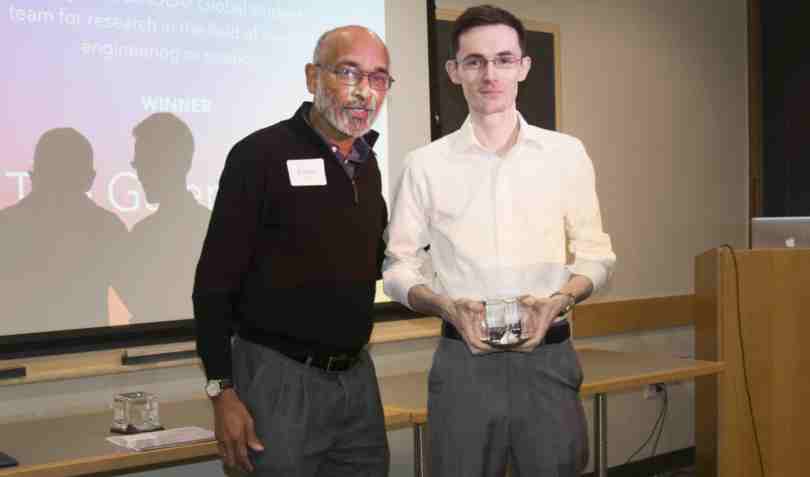Enterprise Ireland is giving a grant of €500,000 to biomedical engineer Oisín McGrath to develop a wrist-worn device whose aim is to reduce rates of stroke and heart failure.
McGrath, who is based at NUI Galway, wants to commercialise his Galenband, a device aimed at people diagnosed with atrial fibrillation. By monitoring heart activity, McGrath hopes that detection rates of the symptoms of intermittent atrial fibrillation will improve drastically, thus cutting the number of deaths and consequences of strokes, which run to millions annually.
Atrial fibrillation occurs when the electrical impulses that coordinate heartbeats don’t work properly, causing the heart to beat irregularly. Tens of millions of people suffer from arrhythmia, which often presents with infrequently occurring symptoms, making it challenging to detect with currently used monitors due to their short recording durations.
Years of suffering — and lives — could be saved if a heart monitor were available which could be worn discreetly and unobtrusively for extended periods of time, whilst continually capturing data. This is what McGrath has set out to develop.
McGrath said: “The achievements of the project are a strong endorsement of the level of teaching and research in biomedical engineering at NUI Galway. With the support of academic staff and the Technology Transfer Office in NUI Galway, and the funding received from Enterprise Ireland, Galenband will press forward in an effort to change the lives of atrial fibrillation patients on a global scale.”
And it’s personal. Inspiration for the project came from McGrath’s own personal experiences with heart arrhythmia.
For 13 years, he suffered with an undiagnosed heart arrhythmia. A standard response for a clinician when a heart arrhythmia is suspected is to issue a 24-48-hour heart monitor in order to capture the symptoms. However, as McGrath’s symptoms were often spaced out by a week or more, the short recording duration of these monitors failed to capture any symptoms, and the arrhythmia continued undiagnosed, causing great mental anguish, high financial costs, and a potential danger to his life.
MIT Endorsement
During that time, 11 different heart monitors failed to capture anything. Eventually, a cardiac pacing procedure was necessary in order to diagnose the arrhythmia. From this experience, MvGrath recognised that a change in recording strategy was required in order to increase the efficacy of detection, and that inspired the research which led to the Galenband.
The project was the first Irish project chosen by Massachusetts Institute of Technology as part of their IDEA² Global programme, and won the Institute for Medical Engineering and Science award for research in the field of medical engineering.
In the course of his research, McGrath worked with students David Kerr, Belén Enguix, and Syed Kumail Jaffrey within the biomedical engineering degree programme.
Photo: MIT’s Dr Emery Brown (left) with Oisín McGrath









